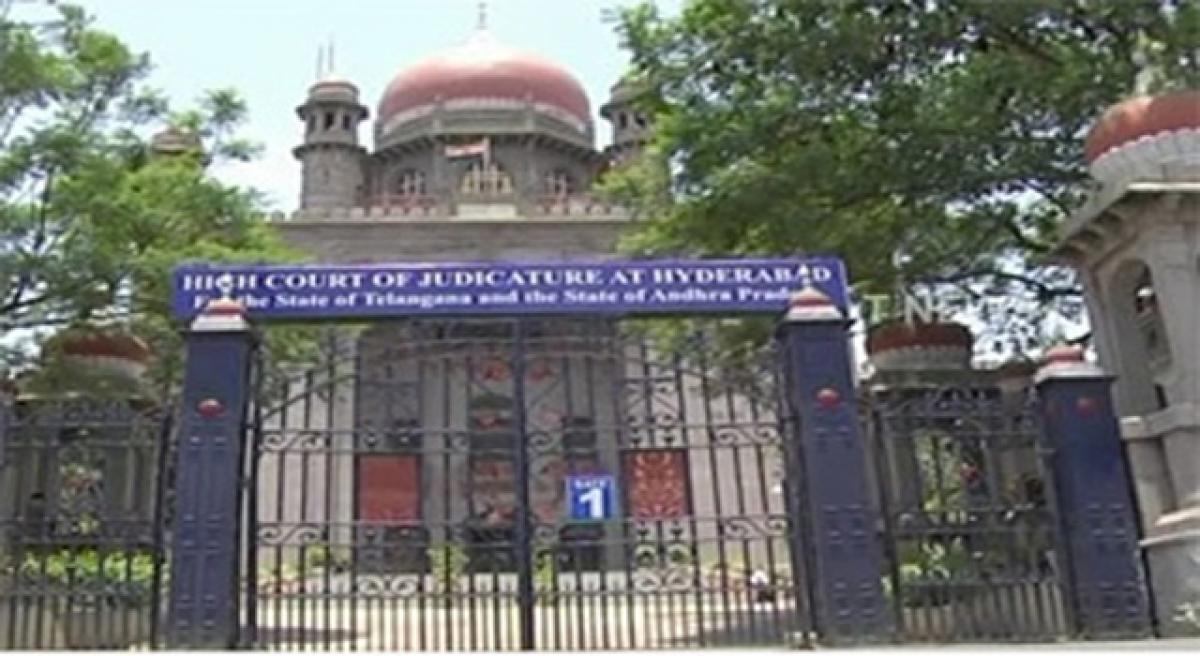Live
- Gurumurthy takes charge as chief of Gowda Corpn
- Study warns: Ultra-processed foods may accelerate biological age
- CM pledges more political opportunities to Madigas
- Year-Ender 2024 Guide: Home remedies to relieve Period Pain.
- All India crafts mela begins today
- TTD gears up for Vaikunta Ekadasi fete
- Vizag attracts tourists as much as Kashmir
- Express Yourself
- Rajadhiraaj: Love. Life. Leela
- Students immerse in nature in Chilkur forest
Just In
Caste of child born out of inter-caste marriage must be case-specific: HC


In a significant judgment, the High Court at Hyderabad on Tuesday made it clear that determining the caste of the child born out of an inter-caste marriage must be case-specific. It rejected the view that child must be given father’s caste.
Hyderabad: In a significant judgment, the High Court at Hyderabad on Tuesday made it clear that determining the caste of the child born out of an inter-caste marriage must be case-specific. It rejected the view that child must be given father’s caste.
A division bench comprising Justice V Ramasubramaian and Justice Anis pronounced the judgment on a petition filed by S Manjoosha Reddy seeking direction to NTR University of Health Sciences to consider her SC caste certificate for admission into MBBS/BDS course.
This judgment in a way endorsed the claim of the kin of Rohith Vemula that he was a Dalit because he was brought up by his mother who was a Dalit.
The petitioner was born out of an inter-caste marriage. Her father belonged to Reddy caste and her mother belonged to Mala community. She stated that she and her siblings were brought up by her mother in accordance with the customs and practices prevailing in the Mala community.
In view of the fact, the Tahsildar of Anakapalli mandal in Visakhapatnam district issued Scheduled Castes (Mala community) certificate in 2012.
However, during the process of admission, Dr NTR University of Health Sciences, as per the advice given by the officials of the Social Welfare Department present therein, rejected the certificate issued by the Tahsildar and treated her as belonging to a forward community.
The petitioner challenged decision of the university in a writ petition. The bench in its judgment stated that “the Supreme Court did not say that a child born to a couple, who married transgressing the barriers of caste, would take the community of his or her father and not that of his or her mother.
On the contrary, the Supreme Court categorically pointed out that the answer to the question would depend upon the circumstances in which the child was brought up and that the same was primarily one of facts.”
In the present case, it felt that the petitioner was brought up by her mother at her place following the customs of the community and was therefore correctly given the caste certificate by the Revenue official after enquiry.
It was therefore not correct on the part of the University or Social Welfare Department to overrule that certificate. It directed the University to consider the petitioner's case under Scheduled Caste category.

© 2024 Hyderabad Media House Limited/The Hans India. All rights reserved. Powered by hocalwire.com






